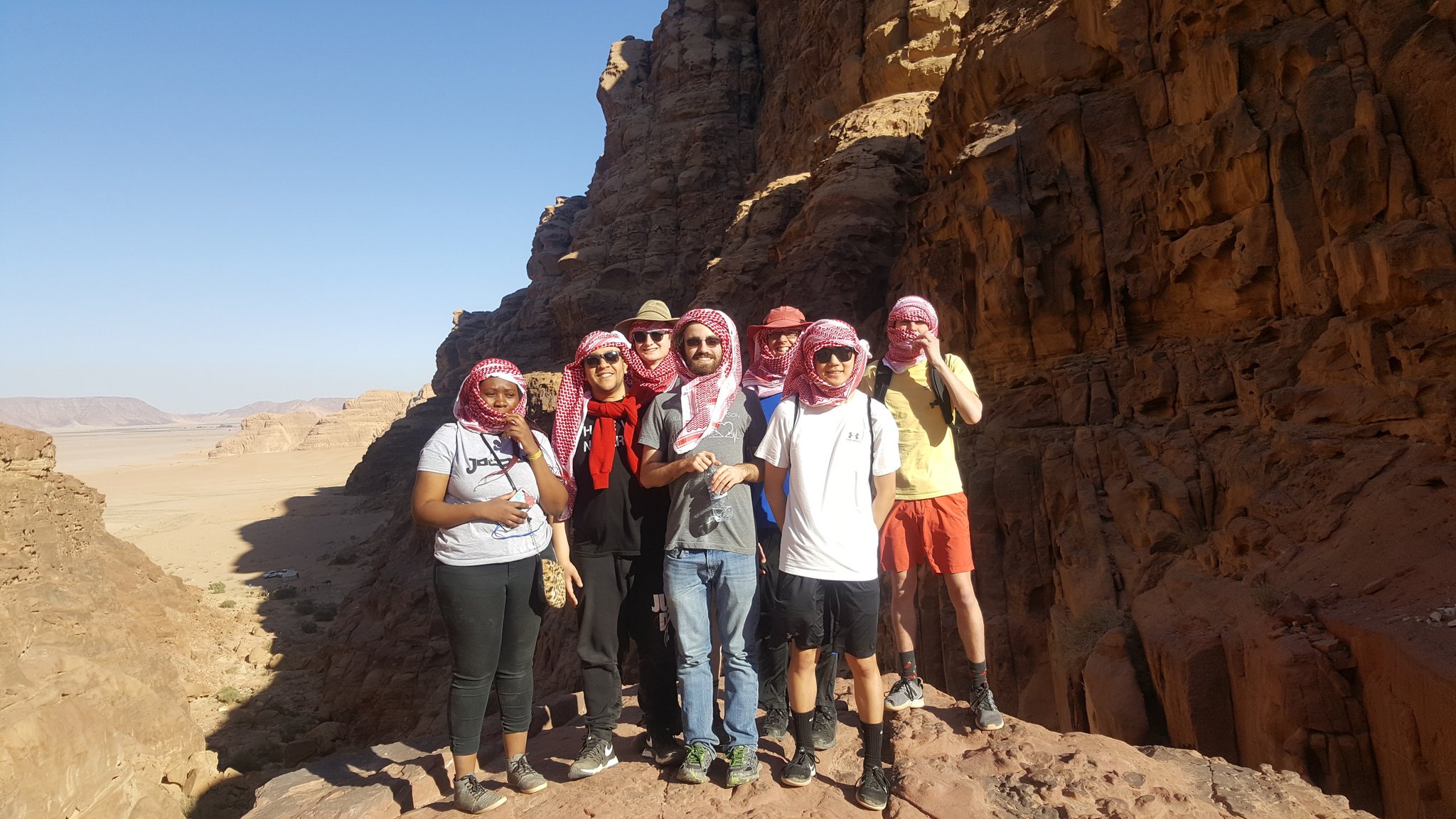
During the 2019 spring break, five University of Nebraska-Lincoln (UNL) Computer Science and Computer Engineering (CSCE) students travelled to Amman, Jordan, for a faculty-led program on Dynamic Programming. Ryan Patrick, Computer Science and Engineering lecturer, and Dr. Tareq Daher, Director of Engineering and Computing Education Core, served as program leaders.
The Education Abroad Office collaborated with CSCE to create the program with the support of a 2017 Capacity Building Grant. The grant was awarded for U.S. Undergraduate Study Abroad programs and funded by the U.S. Department of State, the Office of Global Educational Programs, and Partners for the Americas. As one of 11 institutions awarded funds to increase and diversify participation in study abroad on their campuses, Nebraska designed the program for students in an underrepresented field of study and in an underrepresented region of the world.
The 1-credit education abroad program also expanded upon a virtual exchange course with Princess Sumaya University for Technology (PSUT) launched in Fall 2018. Two of the education abroad program participants had also participated in the virtual exchange course, giving them the opportunity to meet in person with some of the PSUT students they had connected with virtually.
During the program in Amman, Nebraska students engaged with PSUT students through shadowing, in-class interaction and a computer programming contest. Sophomore Sam Curley said, “The hospitality was incredible. The students really wanted to meet us and show us a good time; it was very refreshing to have such a great experience with them. Truly amazing people.”
As a student, Curley believes this experience reshaped his view of the tech industry outside of the United States. “Seeing [PSUT’s] program, I expect great things coming from other countries in the tech industry, which makes me think working in a different country could be a possibility for me now,” Curley added.
Patrick believes that having study-abroad programs for CSCE students provides them with an important opportunity to develop non-technical skills and cultural competency. “Even in a technical field, you'll almost certainly need the skills that studying abroad can help develop,” said Patrick.
In addition to learning various applications of problem-solving strategies for dynamic programming, the students participated in cultural activities such as a mosaic workshop. “Not only did we get to bring home something that we made by hand, we got to experience some of the pitfalls of design,” added Patrick.
The program concluded with an excursion to Wadi Rum and Petra, a UNESCO World Heritage Site. Curley, along with other students, believes that his study abroad experience changed his view of not only Jordan, but also the wider Middle East.
“I decided to go to Jordan because I wanted to experience a different culture with new people,” said Curley. “Jordan, even for a week, has really changed how I view the Middle East, as a whole much more positive, and I hope I have an opportunity to return.”
For more information about the Jordan program or upcoming study abroad programs, visit the Education Abroad website. https://educationabroad.unl.edu/education-abroad-homepage